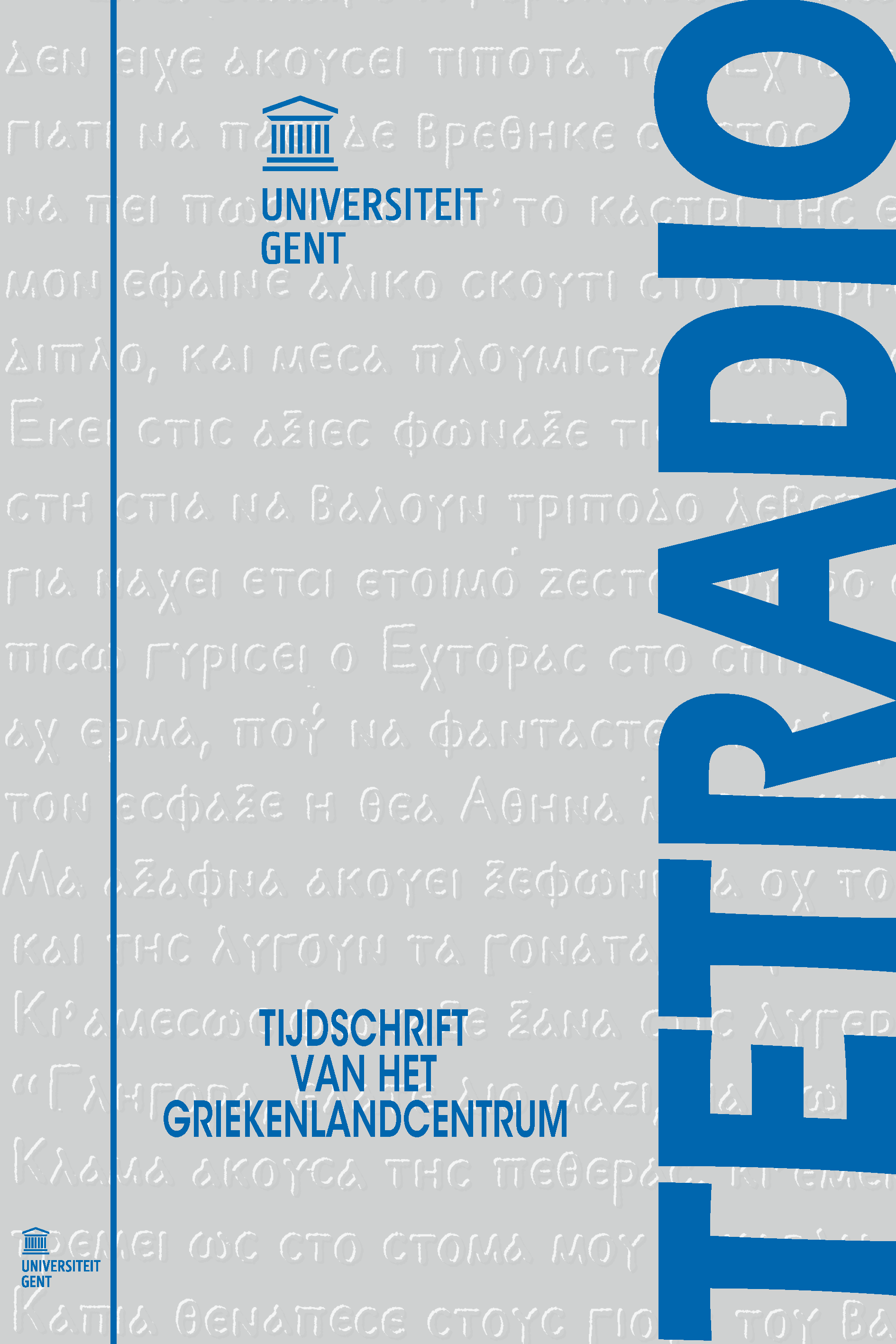Ruimte in de archaïsche Griekse lyriek: Symboliek van stad, natuur en zee
- Jo Heirman
Abstract
In this paper Jo Heirman discusses the role of space in archaic Greek lyric (7th-5th century BC). Based on a theoretical framework derived from narratology,phenomenology and metaphor theory, he focuses on three types of space inarchaic Greek lyric: city, countryside and sea. His analysis of a wide range of lyric poems leads to the conclusion that space primarily has a symbolic role: the city is a political or erotic metaphor, the countryside has erotic associations and the sea is a symbol of danger. In an attempt to explain this dominant symbolism, he suggests a connection with the performance context of the lyric poems, i.e. the symposium.
How to Cite:
Heirman, J., (2013) “Ruimte in de archaïsche Griekse lyriek: Symboliek van stad, natuur en zee”, Tetradio 22(1): 1, 7–26. doi: https://doi.org/10.21825/tetradio.91824
Downloads:
Download PDF
View PDF
